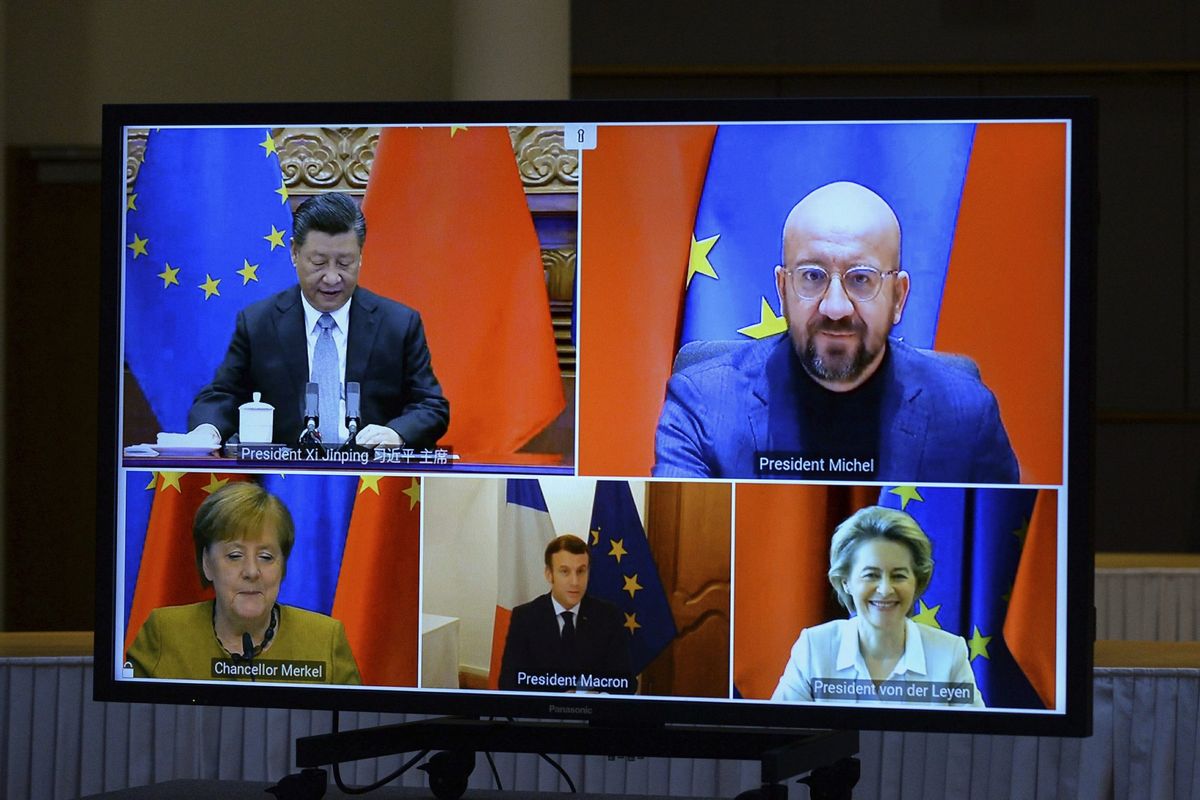EU-China trade agreement reached during “dark days” in the US

A few minutes every morning is all you need.
Stay up to date on the world's Headlines and Human Stories. It's fun, it's factual, it's fluff-free.
Tensions with the US have caused China to diversify its trade system and distance itself from the US. The EU is also believed to have taken advantage of the recent US election that declared Joe Biden as the next president.
China and the European Union finalized a trade deal on December 30, ending seven years of negotiations regarding international economic access between the economic blocs.
The agreement gives the EU better access to the Chinese market by opening China’s manufacturing, construction, advertising, air transport and telecoms industries to the EU.
A major sticking point in the deal was workers rights in China, an issue exacerbated by the treatment of Uighur Muslims in forced labor camps. As part of the agreement, China agreed to work toward ending forced labor, but such promises have been met with little action in the past.
“Proponents of the deal in Europe are highlighting the fact that China has committed itself to ‘work towards’ the ending of forced labor,” Brandon Weichert, a geopolitical analyst and author, explained to TMS. “China has made many promises to many countries over the last several decades. Rarely do they ever follow through on their commitments.”
The United States and China have had a strained relationship under the Trump administration, which has engaged in a trade war with the economic giant. The tensions have caused China to look to diversify its trade system and distance itself from the US. The EU is also believed to have taken advantage of the recent US election that declared Joe Biden as the next president.
“The EU did not finalize the deal until they were certain that President Donald Trump had, in fact, lost his reelection bid,” Weichert told TMS. “Recognizing that a more favorable Joe Biden administration was set to replace the Trump administration, the Europeans opted to finalize the deal in the dark days when Trump was a lame duck and before Biden could exercise any real power.”
Additionally, the conclusion to the Brexit negotiations resulted in one of America’s biggest supporters in the EU being left out of the EU-China negotiations.
“The recent departure of Britain from the EU has also meant that one of the strongest pro-American voices in the EU was removed from the equation,” Weichert explained. “It should come as no surprise that, as the British depart the EU, the continental economic customs union with a high external tariff reorients itself away from the maritime, Anglo-America, Atlantic powers and closer toward the Eurasian powers of China and, to a lesser extent, Russia.”
However, there was still some question as to whether the EU would be able to overlook the human rights violations currently taking place in China to make a deal. In addition to the poor treatment of Uighur Muslims in Xinjiang, Hong Kong has seen a great deal of unrest following more than a year of riots and several democracy-eroding laws that have been passed in the city’s legislature.
Though the EU is calling the deal a major victory, the agreement will likely see China emerge as the ultimate winner in the long run.
“Not only does this reinvigorate Xin Jinping’s tenuous grip on power by granting a major economic victory for his country,” said Weichert, “but it also forces a geoeconomics realignment to occur wherein America’s long-time European partners move away from Washington and into the arms of Beijing.”
“Ultimately, it is likely that, just as they did with trade with the United States, it is the Chinese who will benefit most from this relationship in the long-run. By gaining greater access to European markets, China can continue to move up the socioeconomic development ladder with much greater efficiency while negating any real threat from the Americans that is meant to contain their growing power and stunt their development.”
Have a tip or story? Get in touch with our reporters at tips@themilsource.com




Comments ()